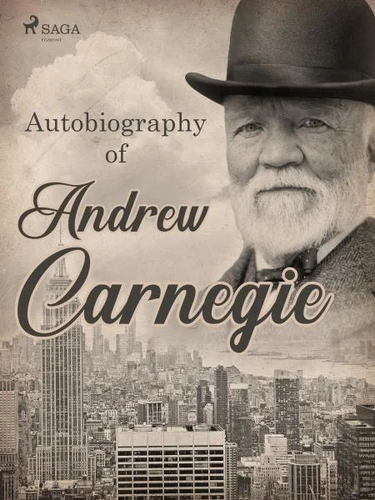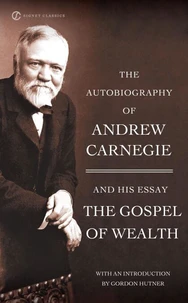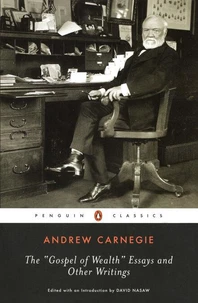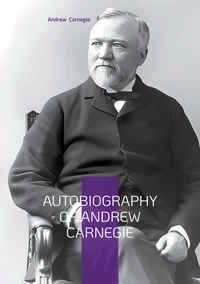Autobiography of Andrew Carnegie
Par :Formats :
Disponible dans votre compte client Decitre ou Furet du Nord dès validation de votre commande. Le format ePub est :
- Compatible avec une lecture sur My Vivlio (smartphone, tablette, ordinateur)
- Compatible avec une lecture sur liseuses Vivlio
- Pour les liseuses autres que Vivlio, vous devez utiliser le logiciel Adobe Digital Edition. Non compatible avec la lecture sur les liseuses Kindle, Remarkable et Sony
 , qui est-ce ?
, qui est-ce ?Notre partenaire de plateforme de lecture numérique où vous retrouverez l'ensemble de vos ebooks gratuitement
Pour en savoir plus sur nos ebooks, consultez notre aide en ligne ici
- Nombre de pages113
- FormatePub
- ISBN978-87-26-55266-9
- EAN9788726552669
- Date de parution11/02/2021
- Protection num.Digital Watermarking
- Taille707 Ko
- Infos supplémentairesepub
- ÉditeurSAGA Egmont
Résumé
This posthumously published autobiography of Andrew Carnegie is a very well written and interesting accounts of the life of one of the wealthiest self-made men in American history. The industrialist and philanthropist lived his life according the following dictum: spend the first third of your life getting all the education you can; spend the next third making all the money you can; and spend the last third giving it all away for worthwhile causes.
Andrew Carnegie (1835-1919) was a Scottish-American philanthropist and industrialist, who made his fortune expanding the American steel industry.
Born in Fife (Scotland), his family was poor and they emigrated to Pennsylvania in 1948, in hope of finding better fortune there. He started working for the railroads at an early age, earning his way up, before leaving that industry to focus on the steel industry after the Civil War. Carnegie was also an author and while he is mostly remembered for his posthumously published autobiography, he contributed to many periodicals, discussing labour issues, and published works such "The Gospel of Wealth" (1889) and "The Empire of Business" (1902).
Born in Fife (Scotland), his family was poor and they emigrated to Pennsylvania in 1948, in hope of finding better fortune there. He started working for the railroads at an early age, earning his way up, before leaving that industry to focus on the steel industry after the Civil War. Carnegie was also an author and while he is mostly remembered for his posthumously published autobiography, he contributed to many periodicals, discussing labour issues, and published works such "The Gospel of Wealth" (1889) and "The Empire of Business" (1902).
This posthumously published autobiography of Andrew Carnegie is a very well written and interesting accounts of the life of one of the wealthiest self-made men in American history. The industrialist and philanthropist lived his life according the following dictum: spend the first third of your life getting all the education you can; spend the next third making all the money you can; and spend the last third giving it all away for worthwhile causes.
Andrew Carnegie (1835-1919) was a Scottish-American philanthropist and industrialist, who made his fortune expanding the American steel industry.
Born in Fife (Scotland), his family was poor and they emigrated to Pennsylvania in 1948, in hope of finding better fortune there. He started working for the railroads at an early age, earning his way up, before leaving that industry to focus on the steel industry after the Civil War. Carnegie was also an author and while he is mostly remembered for his posthumously published autobiography, he contributed to many periodicals, discussing labour issues, and published works such "The Gospel of Wealth" (1889) and "The Empire of Business" (1902).
Born in Fife (Scotland), his family was poor and they emigrated to Pennsylvania in 1948, in hope of finding better fortune there. He started working for the railroads at an early age, earning his way up, before leaving that industry to focus on the steel industry after the Civil War. Carnegie was also an author and while he is mostly remembered for his posthumously published autobiography, he contributed to many periodicals, discussing labour issues, and published works such "The Gospel of Wealth" (1889) and "The Empire of Business" (1902).

















